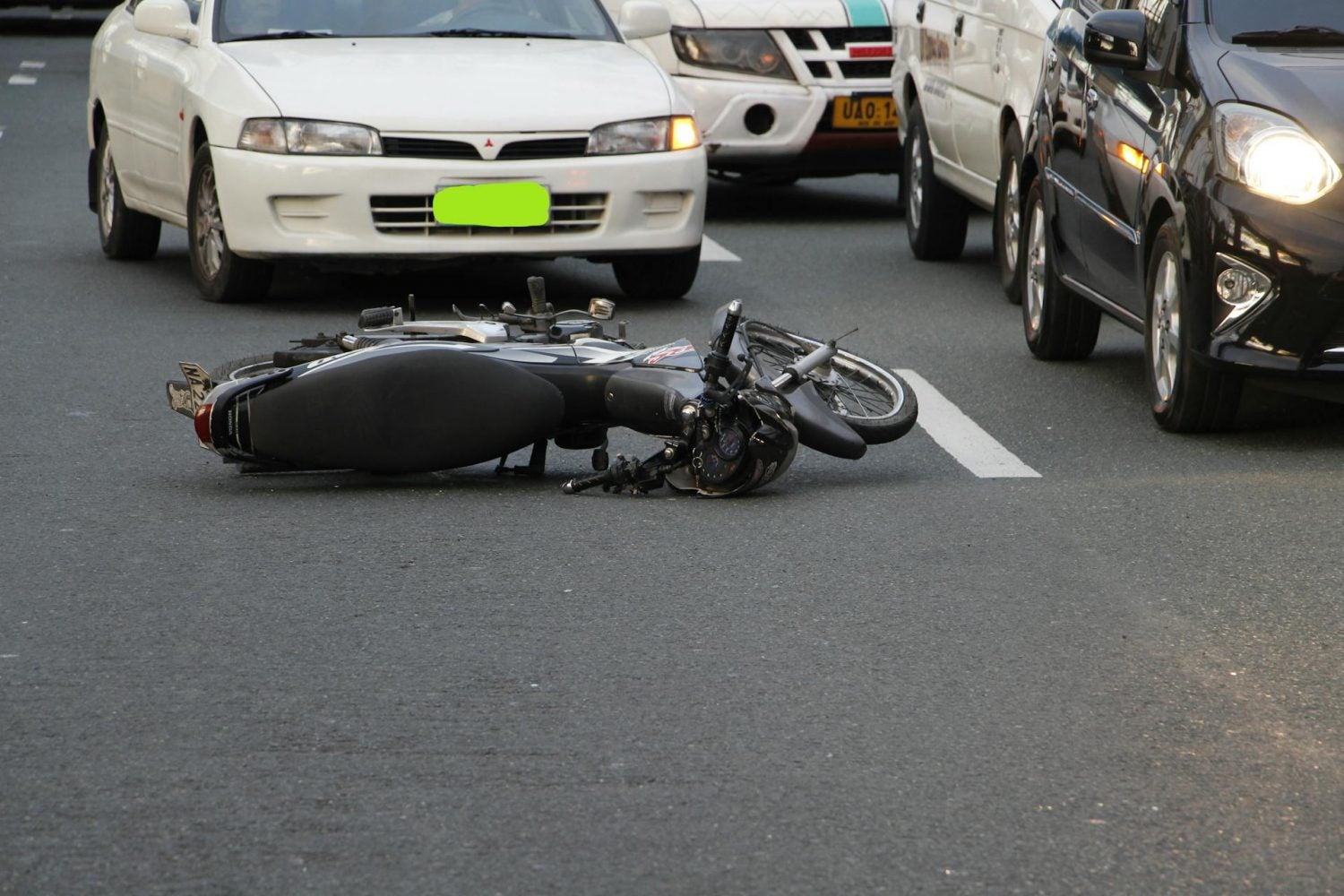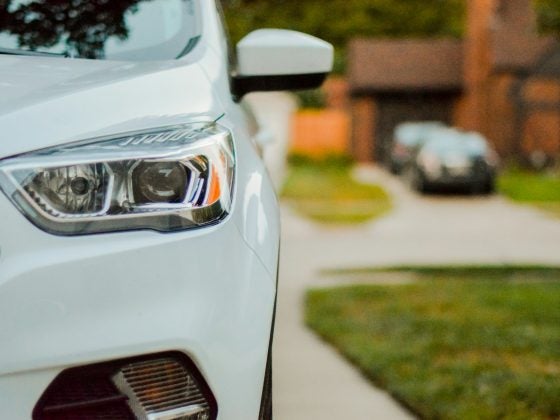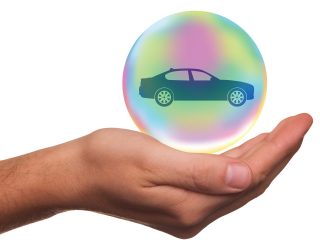Common causes of car accidents include distracted driving, speeding, and driving under the influence.
Each factor greatly impacts your insurance claim and legal responsibility. Understanding car accidents legal information is crucial, as it helps you navigate liability, insurance claims, and potential legal consequences. For instance, reckless driving and poor weather can increase your likelihood of being at fault, while vehicle defects due to inadequate maintenance can complicate matters. Being aware of these causes helps you understand their influence on your claims. Discover more about how these elements play a role in your specific situation as you explore further.
Distracted Driving: The Leading Cause of Accidents
Although many factors contribute to car accidents, distracted driving stands out as the leading cause. You might think it’s just a quick text, but the texting dangers are considerable.
When you take your eyes off the road, even for a moment, you’re increasing your chances of a crash. Texting while driving creates cognitive overload, making it hard to focus on multiple tasks at once. Your brain struggles to process the information from your phone and the road simultaneously, which can lead to poor decision-making.
By putting your phone down and staying present while driving, you considerably reduce the risk of accidents. Remember, no message is worth the danger it poses to you and others on the road.
Stay safe and focused!
Speeding: The Risks of Driving Too Fast
While distracted driving is a significant threat on the road, speeding also poses serious risks. When you exceed speed limits, you not only increase the likelihood of an accident but also face severe consequences.
Higher speeds reduce your reaction time, making it harder to avoid obstacles or respond to sudden changes in traffic. Furthermore, if you’re caught speeding, you could incur hefty speeding penalties, which can impact your driving record and insurance rates.
Remember, driving at or below the speed limit isn’t just a legal requirement; it’s a vital safety measure. By respecting speed limits, you protect yourself, your passengers, and others on the road while reducing the chances of costly claims from accidents.
Stay safe and drive responsibly.
Driving Under the Influence: Alcohol and Drugs
Driving under the influence of alcohol or drugs greatly impairs your ability to operate a vehicle safely. When you consume alcohol, even small amounts can affect your judgment and reaction times.
Prescription medications can also have similar effects, especially when mixed with alcohol. If you’re pulled over, police may use breathalyzer tests to determine your blood alcohol content. If you fail, you could face serious legal consequences, including fines and license suspension.
Additionally, if you cause an accident while under the influence, you may be held liable for damages. It’s crucial to understand the risks and avoid driving after consuming any substances that can impair your ability to drive.
Prioritize safety for yourself and others on the road.
Weather Conditions: How Rain and Snow Affect Driving
When rain or snow starts to fall, your ability to drive safely can be severely impacted. Wet roads increase hydroplaning risks, where your tires lose contact with the road, leading to loss of control. To counteract this, you should reduce your speed and increase following distances.
Snow complicates matters further, as it decreases snow traction, making it harder to stop or maneuver. You need to be cautious of black ice, especially in shaded areas or early mornings.
Always verify your tires are properly inflated and suitable for winter conditions. Staying alert and adjusting your driving style to the weather can help prevent accidents, protecting both you and others on the road.
Always prioritize safety in adverse conditions.
Reckless Driving: Aggressive Behavior on the Road
Adverse weather conditions can challenge even the most cautious drivers, but reckless driving introduces a different level of danger on the road.
You might encounter drivers exhibiting road rage, which can escalate quickly. These aggressive maneuvers, like tailgating, weaving in and out of traffic, or excessive speeding, not only threaten your safety but also increase the likelihood of accidents.
When you find yourself in a situation involving reckless driving, it’s essential to stay calm and avoid engaging with those exhibiting aggressive behavior. Remember, your safety comes first.
If you’re involved in an accident caused by someone’s reckless driving, gather evidence and details to support your claim. This information can greatly influence the outcome of your case and help protect your rights.
Running Red Lights and Stop Signs: Ignoring Traffic Signals
Although traffic signals are designed to keep everyone safe, many drivers still choose to ignore them, leading to dangerous situations.
Running red lights and stop signs is one of the most common traffic signal violations, greatly compromising intersection safety. When you disregard these signals, you not only put yourself at risk but also endanger other motorists, cyclists, and pedestrians.
These actions can lead to severe accidents, resulting in injuries and property damage. If you’re involved in an accident caused by someone ignoring a traffic signal, it can complicate your claim.
Insurance companies often scrutinize traffic signal violations, which may affect your compensation. Always obey traffic signals to help guarantee a safer driving experience for everyone on the road.
Vehicle Defects: The Role of Maintenance in Safety
Regular vehicle maintenance is vital for guaranteeing safety on the road, as neglecting it can lead to serious defects that increase the risk of accidents. You should schedule routine inspections to catch potential issues before they escalate.
Mechanical failures, like brake or tire problems, can occur suddenly and may cause you to lose control of your vehicle. By staying on top of maintenance, you not only protect your safety but also that of others on the road.
If you’re involved in an accident due to a defect that could’ve been prevented, your claim may be impacted. Consequently, keeping your vehicle in top shape isn’t just a good practice; it’s an important responsibility to guarantee everyone’s safety.
Fatigue: The Dangers of Drowsy Driving
Driving while drowsy can be just as dangerous as driving under the influence of alcohol.
When you’re fatigued, your reaction times slow, your decision-making worsens, and your awareness of surroundings diminishes. Drowsy driving is a significant issue on the roads, often underestimated.
Fatigue awareness is essential; if you’re feeling tired, it’s best to pull over and rest rather than risk an accident. Even short bursts of sleep can help improve your alertness.
Remember, a moment of drowsiness can lead to a lifetime of regret. Prioritize your well-being and the safety of others by recognizing the signs of fatigue and taking action.
Don’t let drowsiness turn your drive into a dangerous situation. Stay alert, stay safe.
Inexperienced Drivers: The Risks Posed by Young Drivers
While many young drivers are enthusiastic to hit the road, their lack of experience can considerably increase the risk of accidents. Inexperienced drivers often engage in risky behavior, such as speeding or distracted driving, which can lead to serious collisions.
Without sufficient driving experience, they might struggle to make quick decisions in emergencies, heightening the danger for themselves and others on the road. Additionally, young drivers may underestimate the importance of following traffic rules, further exacerbating the risks.
As a result, if you’re involved in an accident with an inexperienced driver, it’s essential to document the details and understand how their lack of experience could influence your claim. Awareness of these factors can help you navigate the aftermath more effectively.
Tailgating: The Hazards of Following Too Closely
Tailgating can create a dangerous situation on the road, as it reduces the time you have to react to sudden stops. When you follow too closely, you increase the risk of a rear-end collision, which can lead to serious injuries and damage.
Tailgating dangers aren’t just about speed; they also involve misjudging stopping distances and road conditions. By practicing safe following, you give yourself the necessary space to respond to unexpected events.
Always keep at least a three-second gap between your vehicle and the one ahead. This simple adjustment can mean the difference between a near miss and a serious accident.
Frequently Asked Questions
How Can I Prove Liability in a Car Accident Claim?
To prove liability in your car accident claim, gather evidence showing negligence factors, like traffic violations or unsafe driving. Establishing liability determination relies on clear documentation, witness statements, and police reports supporting your case.
What Should I Do Immediately After an Accident Occurs?
After an accident, follow your accident checklist. First, secure safety, then call 911. Collect information from others, take photos, and document everything. These immediate actions can help protect your interests and clarify the situation later.
How Does Insurance Coverage Affect My Compensation?
Your insurance coverage greatly impacts your compensation. If you’ve low insurance limits or inadequate coverage types, you might not receive full compensation for damages. Always review your policy to verify you’re adequately protected.
Can I Claim for Emotional Distress After an Accident?
Yes, you can claim for emotional distress after an accident. During the claim process, gather evidence like therapy records and testimonies to support your case, demonstrating how the incident has impacted your mental well-being.
What Evidence Is Most Important in a Car Accident Case?
In a car accident case, witness statements and accident reports are essential. They provide objective details about the incident, helping establish responsibility. You’ll want to gather as much supporting evidence as possible for your claim.
Conclusion
Understanding the common causes of car accidents is essential for protecting yourself on the road and ensuring your claim is valid. Distracted driving, speeding, and driving under the influence can all lead to serious consequences. By being aware of these factors, you can take proactive steps to avoid them. Remember, safe driving isn’t just about following the rules; it’s about being mindful of your surroundings and the actions of others to keep everyone safe.












